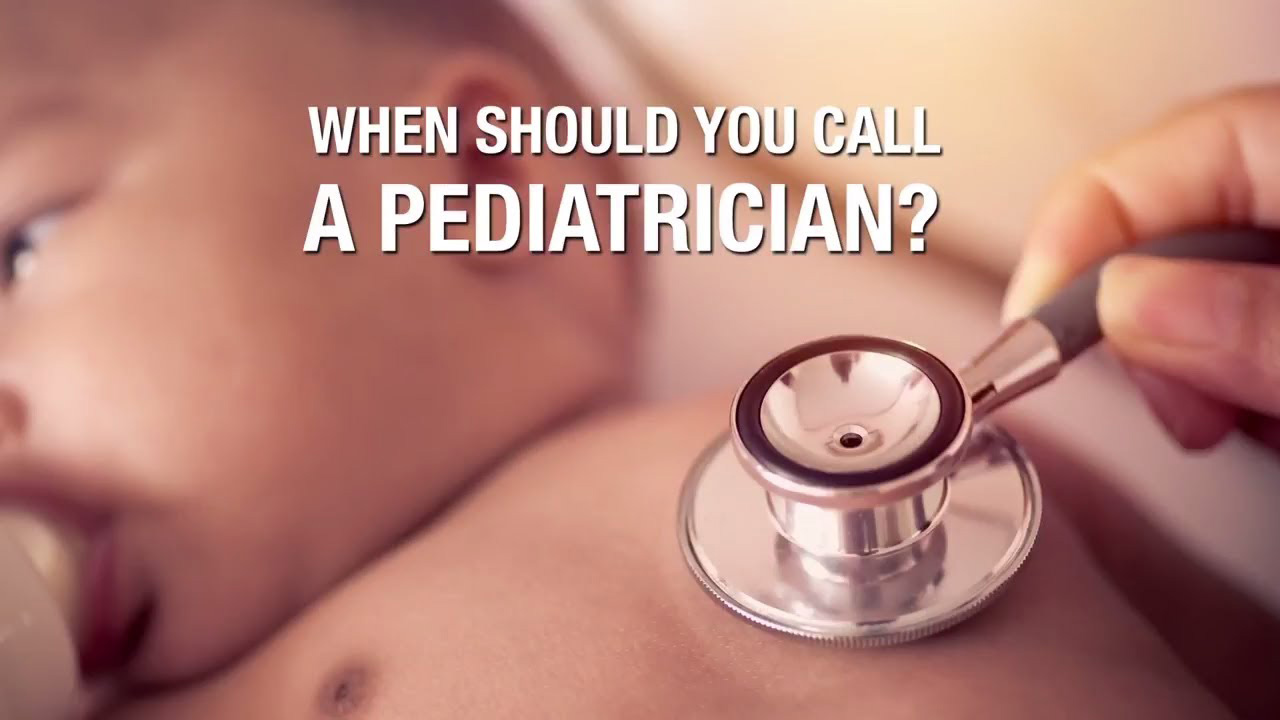When should you call a Pediatrician
- Throughout the few first years of life, children pick up lots of viral illness. Most of it's short, self-limited, two or three days, there could be a little fever, there can be some intestinal upset, there can be some respiratory symptoms. I take care of most of these kids on the telephone. I ask a lot of questions about hydration, a few smiles. This is all different, by the way, in the first couple months of life. In the first couple months of life, almost any minor illness is probably gonna need an appointment with the doctor. But beyond that, what I ask parents is, "Is your child drinking enough to stay hydrated? "Is he smiling even though a little less than usual "or a lot less than usual, but still smiling," and "Is he moving around okay?" And if you're comfortable with your child, you can stay home. But I also tell parents that, I need to listen closely, because there are times of year when one of the most frequent things I say on the phone is, "Well, everybody's throwing up," or "Everbody's got a bad cold." Then I listen a little closer because there are times when you can hear in a mom's voice or a dad's voice that this is a little bit different. And, just generally speaking, if you're not comfortable with your child's illness, call your doctor and if you're still not comfortable, make an appointment. Don't be talked out of it, go see your doctor.
- I think that maternal and paternal instinct is a very powerful thing, and I think that if you have a concern as a parent and you don't feel that it can wait, you should always call your doctor. That said, children are gonna have between six and 16 illnesses a year, especially under 3 years of age, especially if they are in day care or if they have siblings, it's gonna be closer to 16, and the reality is that these infections teach our immune system to tolerate the world around us and to protect us and help us to transition towards adulthood. That said, there are certain things that we worry about when children are sick. We obviously worry about a child who is becoming deyhdrated because they're vomiting and you can't keep up with their losses. We worry about a child with a very high fever, although high fever doesn't always mean that something is wrong. Sometimes even hypothermia can be a more ominous sign. That said, any child that's under a month of age who has a fever of 100.4 or more absolutely needs to be evaluated immediately in an emergency department or in-patient setting. Between the ages of two and three months, I think that you need to call your pediatrician right away, and beyond three months of age, typically, some fever-control measures and some observation is all that they need, at least early on in the illness, so that you can call your pediatrician in the morning.
- As a parent, trying to decide whether or not your child should be brought to their pediatrician's office or the emergency department is really a complex and difficult, sometimes, question to answer. But there are few things I would suggest. One is if you as a parent believe your child may need blood work to determine what's wrong, if your child may need an X-ray or some specialty care, for instance, you think your child is having intestinal problems and you believe that your child may need to see a specialist who really studies intestinal or stomach diseases, then it's probably worthwhile to go directly to the emergency department. On the other hand, if it's a disease or a selection of symptoms for which you think either getting knowledge by talking to your pediatrician or perhaps an antibiotic or cough or cold medications and you believe that it's relatively straightforward or simple, then going to the pediatrician's office really makes the most sense. But probably the best advice is if you're unsure, call your pediatrician, who can then guide you so you can get, most expeditiously, the best care for your child.
Pediatricians, Jay Gordon and Lawrence Kagan encourage parents to trust their paternal and maternal instincts




 GET ACCESS TO ALL PREMIUM CONTENT WITH NO ADS FOR $4.99/MONTH
GET ACCESS TO ALL PREMIUM CONTENT WITH NO ADS FOR $4.99/MONTH
Login or Register to view and post comments